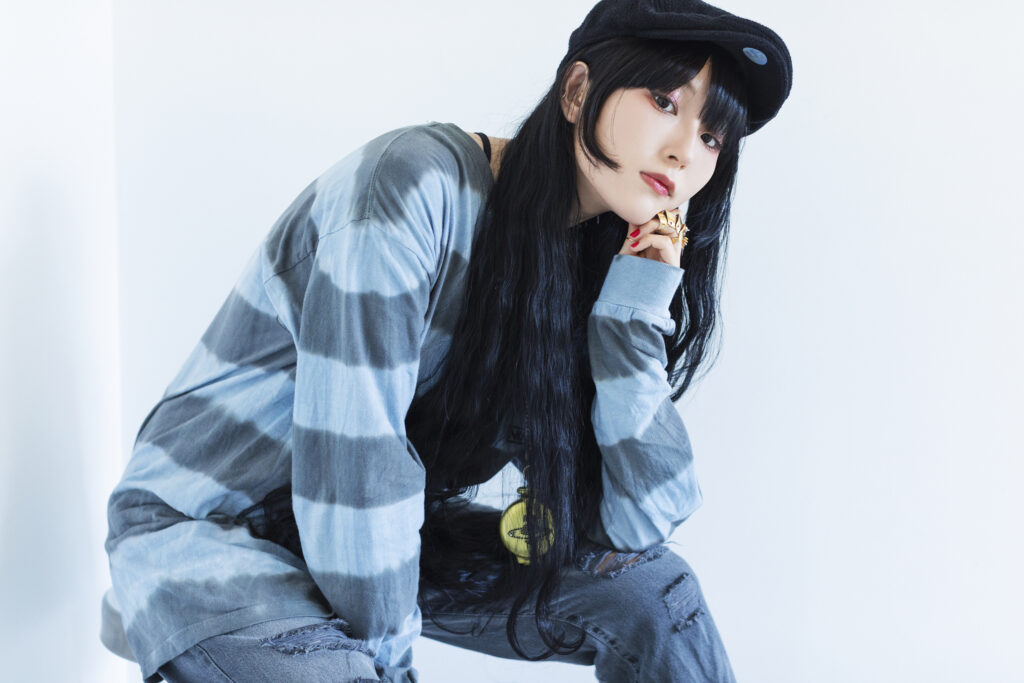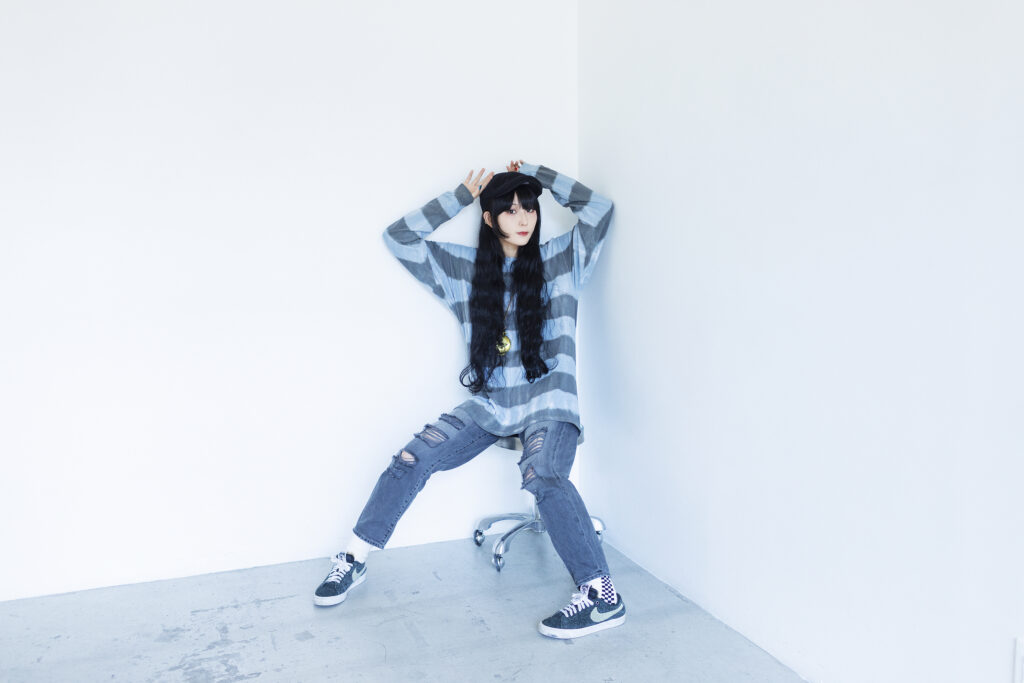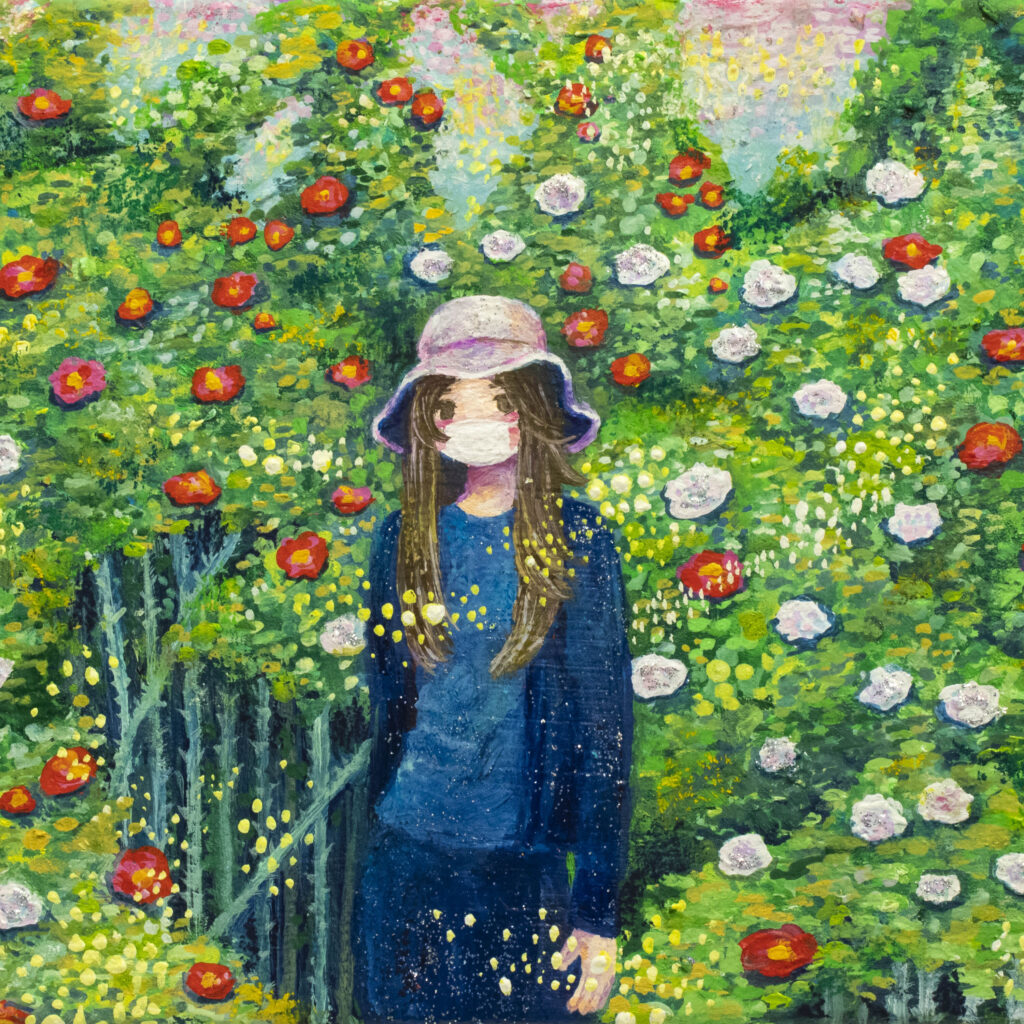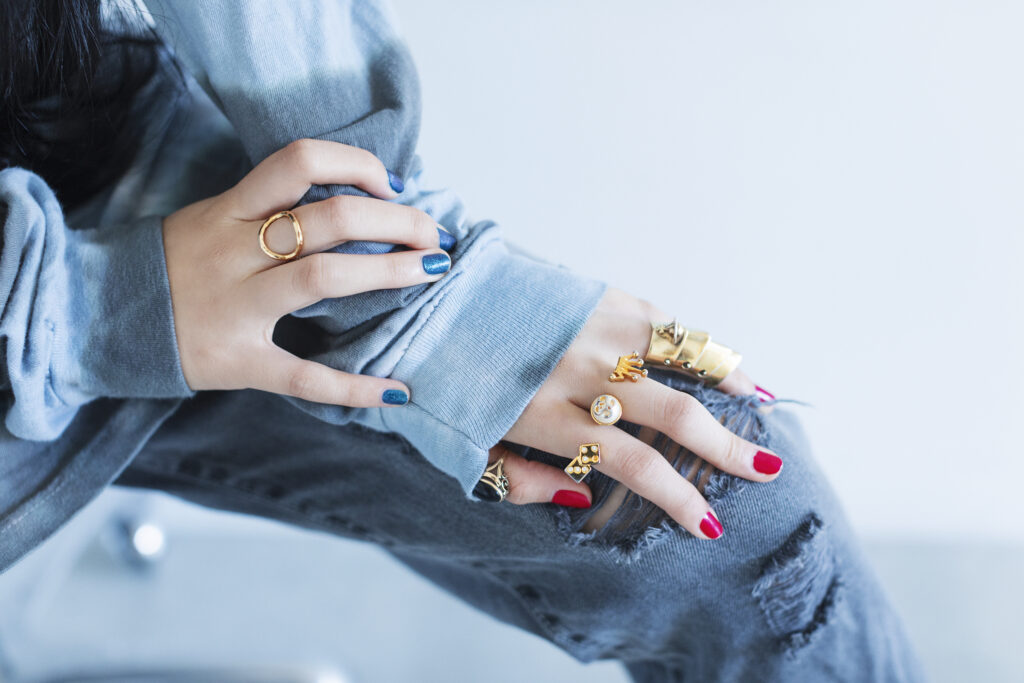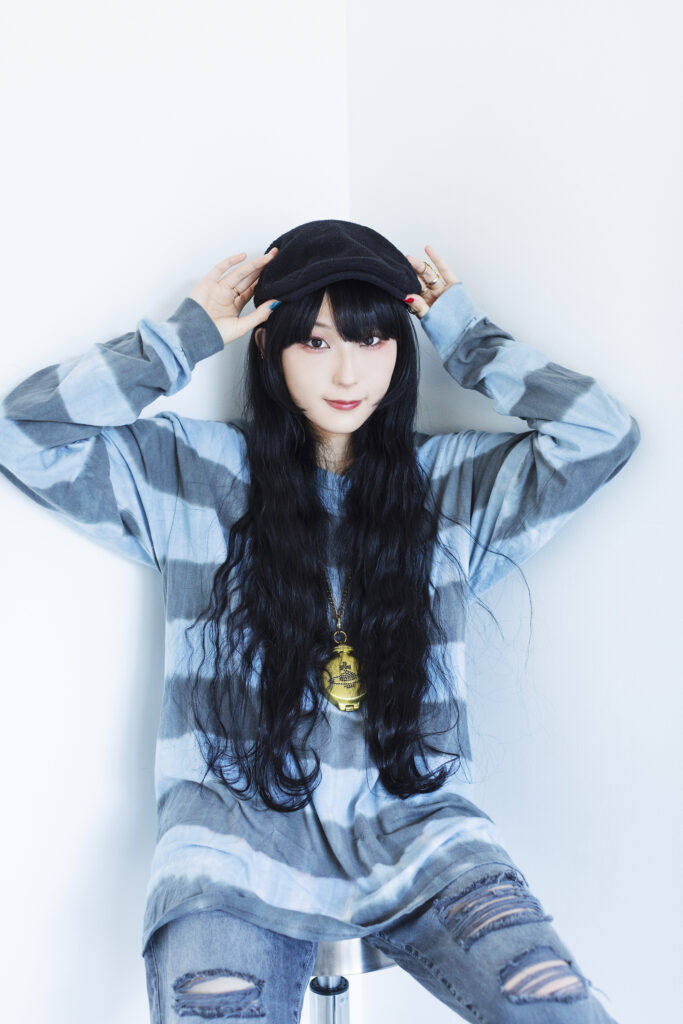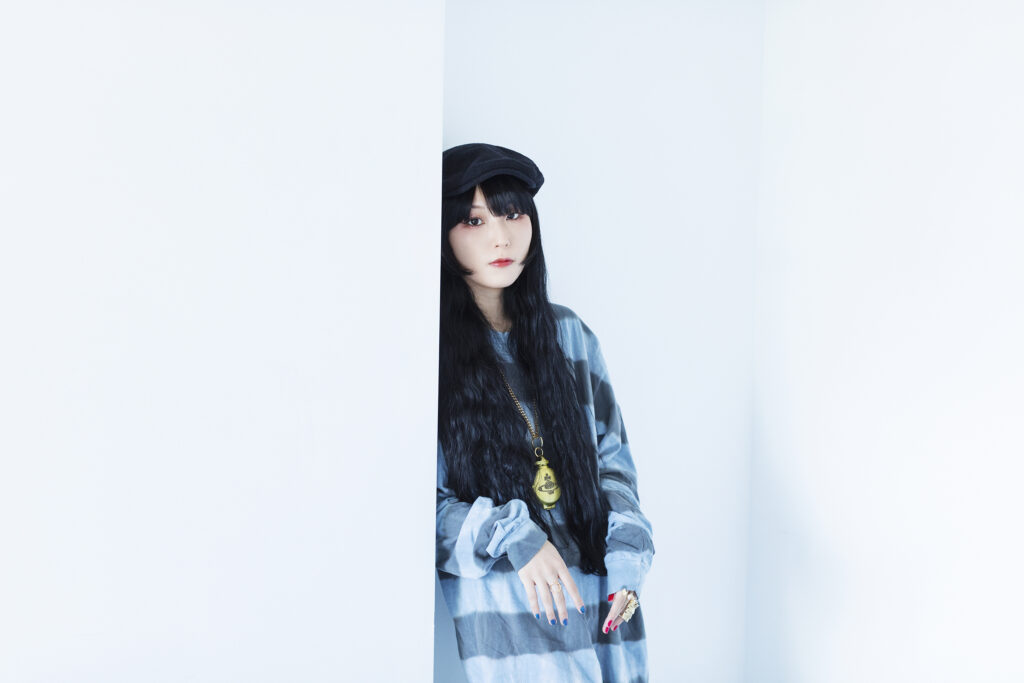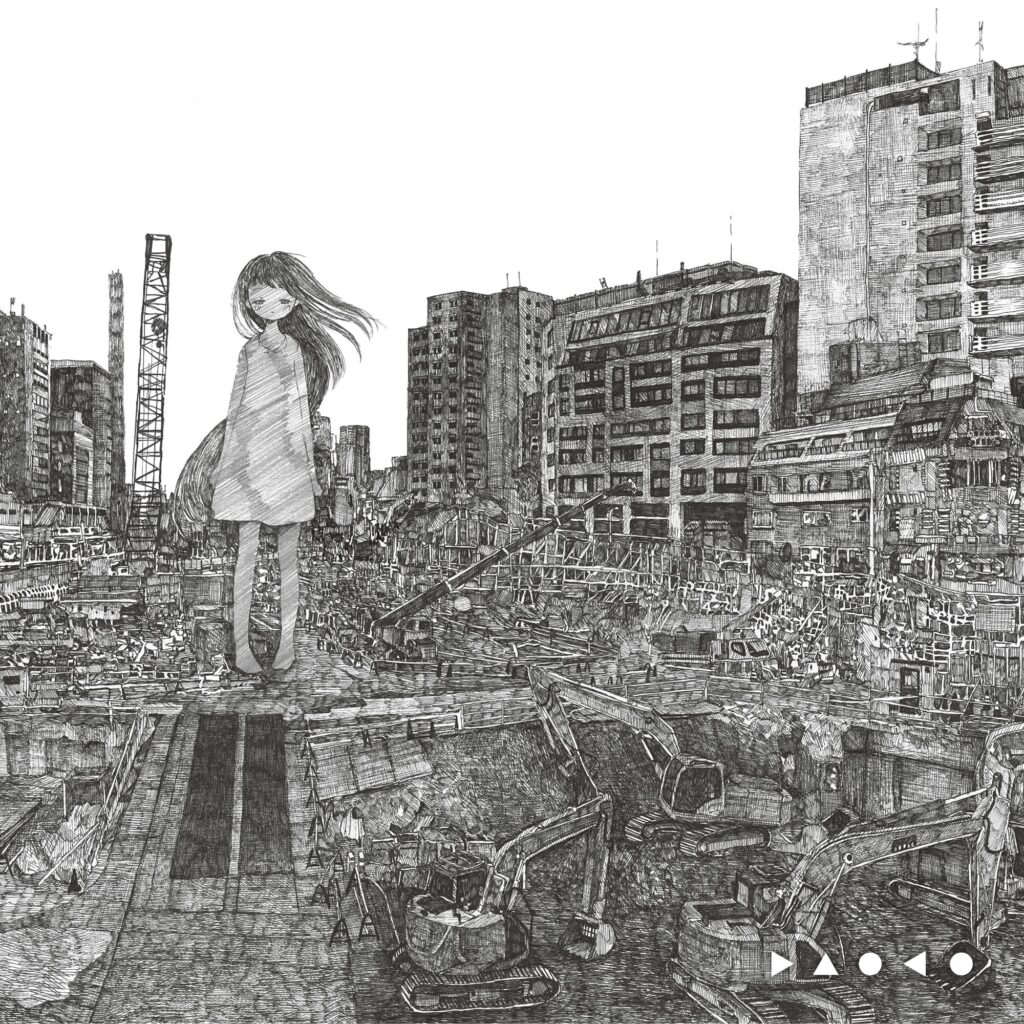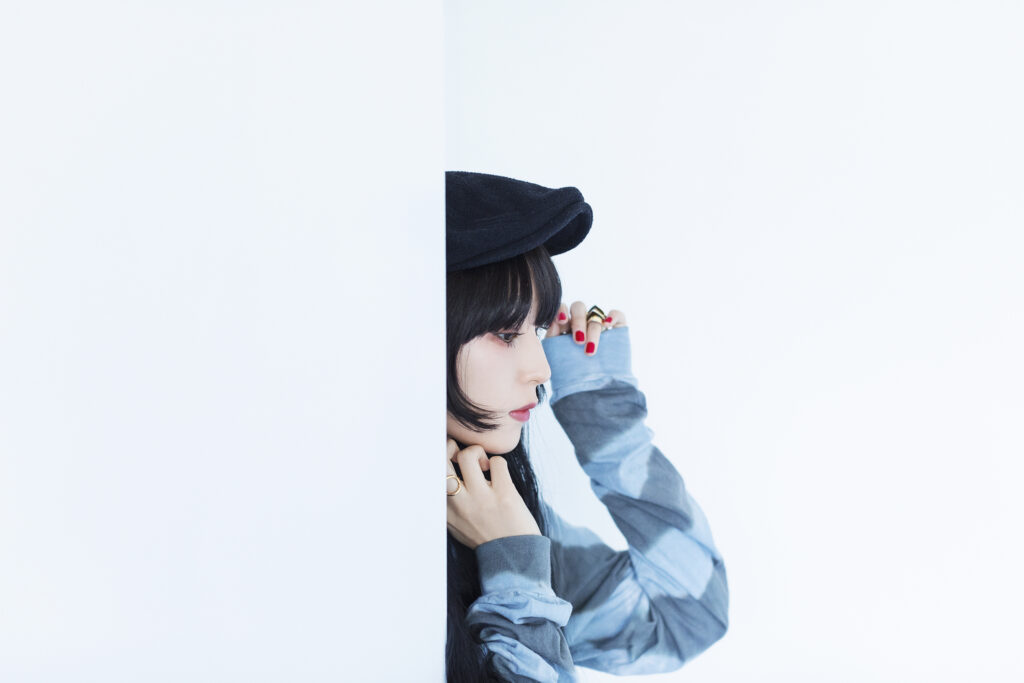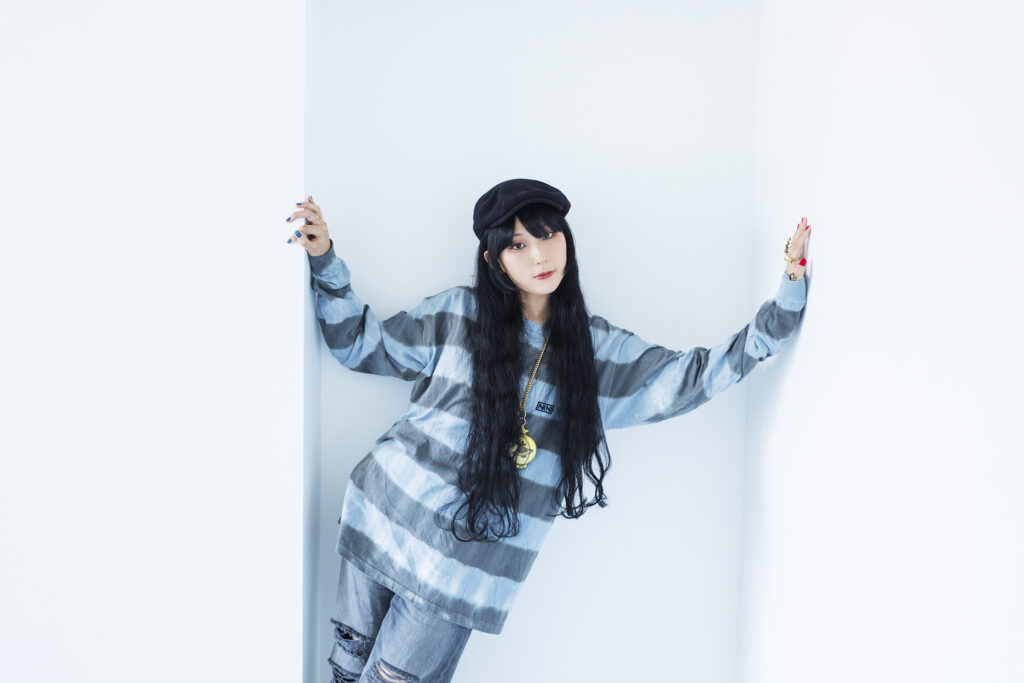Since her major label debut in 2015, Daoko has flourished as an artist with a unique presence and musical sensibility. Last year, she proved that she had entered a new phase after releasing her new album, anima; She had been deeply involved in the production of the album and its innovative musical works. In 2021, she performed live with a band of spirited musicians including Shohei Amimori, which she streamed to the world. In June of this year, she released a new EP on various streaming platforms through her independent label, and she’s never stopped moving and sharing music, even in the face of the coronavirus pandemic. In an entertainment industry that is still struggling to stay afloat due to the coronavirus, how is Daoko approaching music, expression, and everyday life? TOKION interviewed her about the past two years of her career to understand what led her to change her mindset.
——How have you been these days?
Daoko: Good, thankfully. I got my 2nd vaccine, too.
——You released your new EP, the light of other days, on June 30th. How did that new project come about?
Daoko: DJ6gatsu, a long-time collaborator of mine since my independent days, reached out earlier this year and said that he’d made some tracks that were perfect for me. I listened to a few tracks and chose from there. The title is the light of other days, and it’s an EP that embodies what I’ve been feeling since the pandemic.
——This new work was a departure from major labels—it was released through your own independent label, teftef. What led to you starting your own label and company, teftef, in 2019?
Daoko: I started my own company because going forward, I think it’ll work better in this day and age for artists to take the lead and express what they want while it’s still fresh. Also, I felt that I could make the things I wanted to do into reality. Although looking back on it now, we entered the coronavirus crisis fairly soon after I started the company.
——You first garnered attention when you posted a song to Nico Nico Douga at the age of 15, and you made your major label debut in high school. Your career started quite early, didn’t it?
Daoko: Yeah. So it’s been nearly 10 years since I got into music. I made my major label debut in 2015, but I was clueless about the music world when I was in my teens, and my intention was never to join a major label and become popular. I just wanted to express myself through the music that I liked and have people listen to it. I think the reason I went from being independent to joining a major label was that back when I debuted, physical CDs were still barely holding on. Streaming wasn’t as prevalent as it is today. These past 10 years have been an era where the music world has changed at an incredible pace.
——After your major label debut, you had hit songs and built up a steady track record. What did you gain from the experience?
Daoko: Back when I was independent, I was always recording at home, so joining a major label and recording in a studio with the proper environment was huge. I met all kinds of people there, gained a lot of experience, and gradually got an idea of what direction I wanted to take. I think of myself as a rapper/singer, so it was a great experience to be able to perform with all kinds of people through features. But I’m constantly making music, so if possible, I want to share it before that passion cools down. Instead of putting a lot of effort into formalities, I want to explore the methods that work for these times and work more intimately with people. I’ve been having fun up until now, but I want to pursue even more of what I love.
——In 2019, the year when you went independent, you held an exhibition with your paintings and Shinkai Baba’s photos, organized your own live events, and toured with a new band. It was a year in which we gradually saw a different side of you.
Daoko: That’s true. I had things that I wanted to try, so I wanted to actually make them a reality. And I wanted to move forward with the things I couldn’t do on my own with the help of a lot of people. So with anima, I got to team up with Akito Katayose again, who I met when he produced my first album, DAOKO. I also fortuitously met an amazing talent named Shohei Amimori.
On the confidence gained from her 4th album, anima
——On your winter 2020 tour, “2020 Otogi no Mitoshi tour,” it seems your performance with the band led by Amimori got a good response. I was impressed by how relaxed you were performing with the band.
Daoko: The previous year, I’d gone on stage for the first time with a live band and realized how fun live shows could be. The sounds and grooves by the band members, including Amimori, allowed me to feel the power of music once again and experience music’s brilliance. Because I was really enjoying the show and music itself, I think I was able to show my true self and communicate with the audience naturally.
——Up until then, I thought that there was a veiled aspect to you, but I feel like the live performance gave me a clearer view of you.
Daoko: I think that’s true. Until then, I felt like my existence was designed to be very anonymous…I think that anonymity or mystique is interesting too, and I think it’s unique to Japanese culture, so I’m not dismissing it. But I think it’s a bit different from what I’d like to express going forward.
——Right after your “Otogi no Mitoshi tour,” the world was hit by the coronavirus. But you had already started producing your album, anima, at that time, right?
Daoko: Yes. At that point, I was mostly done with recording, so I’d just narrowly missed being impacted by the coronavirus. Because of the coronavirus crisis and the period of self-restraint, I had the choice to postpone the release. But I decided that the content, including the lyrics, wouldn’t be painful or uncomfortable to listen to under the circumstances of the coronavirus crisis, so I decided to release it as scheduled.
——With anima, you committed yourself more fully than ever to the album, and successfully expressed a new universe. What do you think you gained from that experience?
Daoko: I got a real sense of accomplishment from being able to visualize the worldview I wanted to express in a way that felt satisfying. I learned a lot from co-producing with Kataori. While I could also say that I came to understand what I lacked, I felt that making music with a trusted musician was truly an irreplaceable joy. There were some really difficult songs, so it also made me feel confident, like, “’I’m capable of making an album like that!”
——Usually, you’d have a tour scheduled after an album release, right?
Daoko: After the coronavirus hit, I couldn’t schedule live performances. It was a difficult situation, to not be able to perform live at a time when I’d just started my company and put out an album. But it was out of my control.
——This year, you were finally able to perform for an audience with your one-night-only live performance, “A(nima) HAPPY NEW TOUR 2021” on January 31st at Shibuya Sakura Hall.
Daoko: I was really happy to be able to get on stage for the first time in a while with the people who’d been a part of the album. I hadn’t performed live since the time of my album release when I streamed a crowdless event on DOMMUNE and my official YouTube channel. We limited the audience to half seating capacity, but even still, I was thankful that people came out to see the show.
——You streamed that performance on March 13th not only for Japan, but for the whole world. It was streamed according to each country’s time zone, in consideration of your overseas fans.
Daoko: I still couldn’t tour, so I wanted to stream the show so as many people as possible, from all over the world, would be able to watch. I’m grateful that there are people all over the world who listen to my music via streaming and YouTube, so I wanted to make a global broadcast happen somehow. If it weren’t for corona, I’d have wanted to perform overseas, so I hoped that people could see the current Daoko via live stream.
——One of the advantages of this era is that you can get direct reactions from overseas.
Daoko: Right. During the pandemic, I’ve had the opportunity to connect with overseas artists through social media. There are pros and cons of social media, but the fact that there are more communication tools like that gives me hope. It’s also inspired me to study English more.
“Making music and sharing it with everyone is what I can do at this moment.”
—What did your day-to-day look like while you weren’t touring or performing live?
Daoko: I’d been painting and jotting down words that came to mind before the coronavirus, but since I’m home more often now, I spend more time with myself. That’s not necessarily a bad thing, I think. It’s not that I haven’t felt anxious or impatient about the future. I still feel a bit uneasy, but all I can do is come to terms with these circumstances and keep moving forward. When the cases were down, occasionally I’d go to shows, see friends, or eat out to help my friends’ restaurants, even if only a bit. But for now, I’m trying to stay healthy, both physically and mentally.
——The three songs on your new album, the light of other days, are songs that reach out to people who are feeling anxious or uncomfortable in this pandemic.
Daoko: I wanted to document my feelings during the coronavirus, a crisis with no end in sight. I don’t think I’m the only one who feels this vague anxiety, so I wanted to put that into words and melodies and share it with everyone.
——Your lyrics and raps feel more honest than ever.
Daoko: I think part of it is the organic feeling of the tracks. I’ve known DJ6gatu since I was 15, and I trust him to make tracks that I like. So while I wasn’t making much of a conscious effort, I think that these comparatively more honest words just came out.
——In the single off the album, “fighting pose,” you sing, “What’s up? What’s going on?” with kindness, as if you’re talking to a close friend.
Daoko: That’s true. I really wanted to somehow connect to the fact that there’s always a light at the end of whatever we’re experiencing. I think music has something that can be that “light,” so making music and sharing it with everyone is what I can do at this moment. I wanted to make this album before I forgot everything I felt over the past year, and I wanted to release it before that passion cooled down.
——You also painted the cover art for the album.
Daoko: Yumeno, a friend of mine since high school, modeled for the painting. She’s walking her own path as a painter while attending art school, and she’s been a lifesaver to me. I’ve been making music and painting since I was a teen, and it just so happened this path in music opened up for me, so seeing her giving painting her all has been a real source of encouragement. Over this past year, I really felt like the fact that I have those kinds of friends has become a “light” in my everyday life.
——Yumeno was also in the music video for “fighting pose,” which you devised the storyboard, planning, and styling for. The music video, which is a straightforward portrayal of both of your everyday lives, left an impression on me.
Daoko: In this music video, I tried to portray our current everyday lives and the faint but certain “light.” Unlike past music videos that made use of the latest techniques and gear, I wanted this music video to have a softer atmosphere.
——This July, a tribute album celebrating 50 years of Takashi Matsumoto’s songwriting career, “Take me to Kazemachi!” was released. In it, you tried your hand at a cover of the famous song, “Nausicaa of the Valley of the Wind”.
Daoko: I’ve been listening to Matsumoto’s lyrics for as long as I can remember, and I love many of his songs, so it was an honor that to be approached for this opportunity. There were several songs to choose from, but the producers and I agreed that “Nausicaa of the Valley of the Wind” would best suit my voice, so I sang that. It’s incredible how Kameda sincerely elevates his respect for Matsumoto, and I think this tribute album, which brings together the love of many people, is filled with those joyful connections.
——I heard that you like and regularly listen to Japanese music from the 70s and 80s, like Yoshitaka Minami’s “Matenrou no Heroine,” which Matsumoto wrote all the lyrics to.
Daoko: I think I’m someone who listens to all kinds of music regardless of genre, but it was through the music I loved that I first encountered Matsumoto’s words. Or I suppose, there were songs that I would listen to or hum to myself since I was little that I didn’t realize were written by Matsumoto. “Nausicaa of the Valley of the Wind” is one of those songs. Even if I listen to it today, it still sounds fresh, and it’s inspiring as a person who expresses herself through words.
——What are your plans for future releases or activities?
Daoko: Things aren’t at the stage where I can announce a schedule for live performances, but once the situation calms down, I’d like to tour. I also want to do more work overseas and expand my range of expression. I’ve been making music behind the scenes this whole time, so I think there’ll come a chance to share that again as well. In 2021, the coronavirus is still happening, and it’s hard to tell what the future holds. But I’d like to find things in my daily life that make things more fun, even if just a little. Now, what I want to do most of all is make music that I’m happy with.
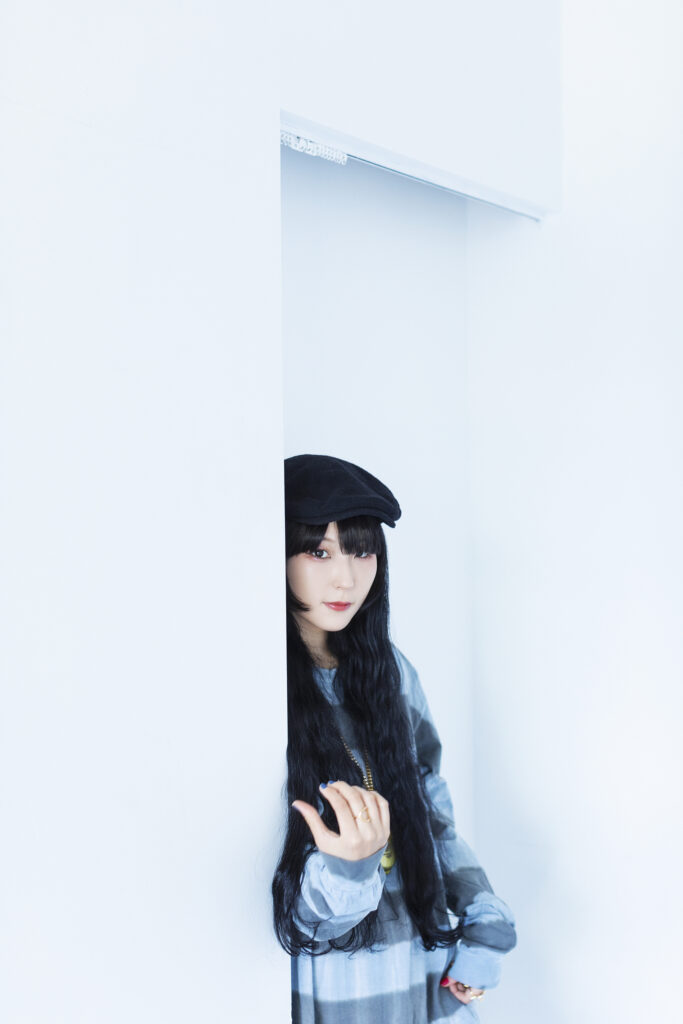
Daoko
Daoko is an artist born in Tokyo in 1997. She first attracted attention at age 15 with a song she uploaded on Nico Nico Douga, and in 2015, she made her major label debut with the album DAOKO. Since then, she has collaborated with major talents on songs such as “Fireworks” with Kenshi Yonezu and “Step up LOVE” with Yasuyuki Okamura while also developing her career as a solo artist. She’s attracted attention both inside and outside of Japan as she keeps up her creative expression through a diverse range of creative projects, including writing a novel, holding her first photo and painting exhibition, organizing her own live events, and successfully touring with a new band. In 2019, she started her independent label, teftef. On June 24th, 2020, she released her 4th album, anima, on CD and streaming platforms. On June 30th, 2021, she released the first EP from her own label, the light of other days, via streaming platforms.
https://daoko.jp
Twitter:@Daok0
Instagram:@daoko_official
YouTube:https://www.youtube.com/channel/UChZvE2JzSafBDeAJNmwNGGA
Photography Takahiro Otsuji(go relax E more)
Translation Aya Apton

